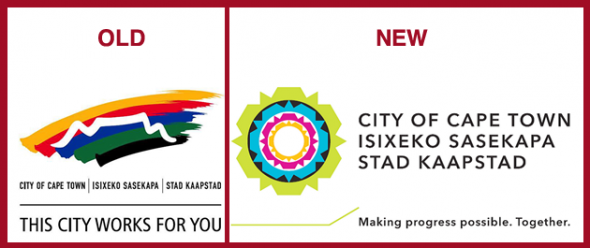
Cape Town’s Proposed new Corporate Identity
So Cape Town’s changing it’s corporate identity. The City was forced to make an announcement prematurely about the new identity after a series of leaks and rumours which resulted in a South African newspaper publishing an incorrect version of the proposed new identity. Today Mayor de Lille outlined the City’s proposed new corporate identity in […]

So Cape Town’s changing it’s corporate identity. The City was forced to make an announcement prematurely about the new identity after a series of leaks and rumours which resulted in a South African newspaper publishing an incorrect version of the proposed new identity.

Today Mayor de Lille outlined the City’s proposed new corporate identity in a statement, saying that the “net result of this reliance on leaks, anonymous comments, and gossip has done a great disservice to the people of Cape Town” and that “in light of this situation, it has become necessary to set the record straight”.
She insisted that the process “will not be at the expense of service delivery. No new budget has been allocated to the development or implementation phase.”

In a PDF, available for the City of Cape Town’s website all the most commonly asked questions are addressed.
Here is the first one…and that which most people are asking:
1. Why has the City decided to change its corporate identity and pay-off-line?
The City of Cape Town’s current corporate identity and pay-off-line is approximately ten years old. As a result, it has become outdated and misaligned with the values, strategy and vision of the City as contained in the Integrated Development Plan (IDP) and supporting polices such as the Economic Growth Strategy (EGS) and the Social Development Strategy (SDS).
The City has worked hard to build a reputation as the ‘City that works for you’ by being acknowledged as the best run local government in South Africa and the leading provider of services. However, as contained in the vision of the IDP, the City now wants to build on this legacy and build a city of opportunity.
Furthermore, the positioning of the ‘City that works for you’ is the antithesis of what this administration stands for, in that it implies a passive government-citizen relationship. We want to shape a future of dynamic collaboration, where we work for mutual success through partnership and shared responsibly.
It is only through government, citizens, civil society and business working together that we can build on our past successes and ensure the creation of a city characterised by opportunity for all.
